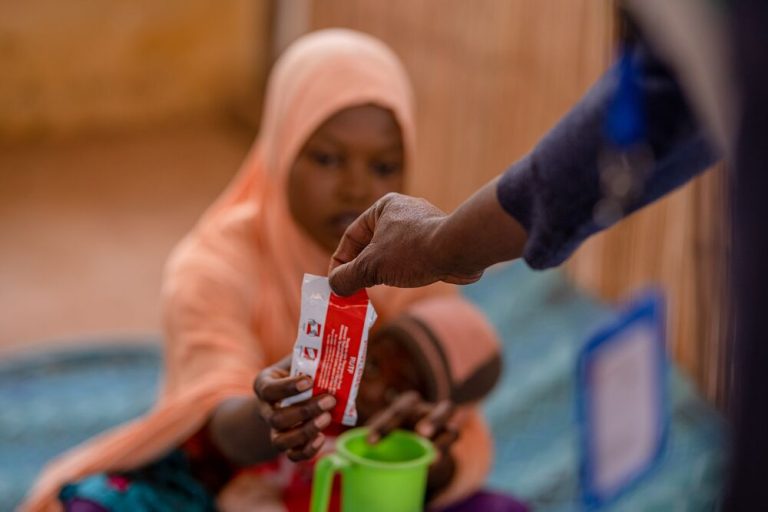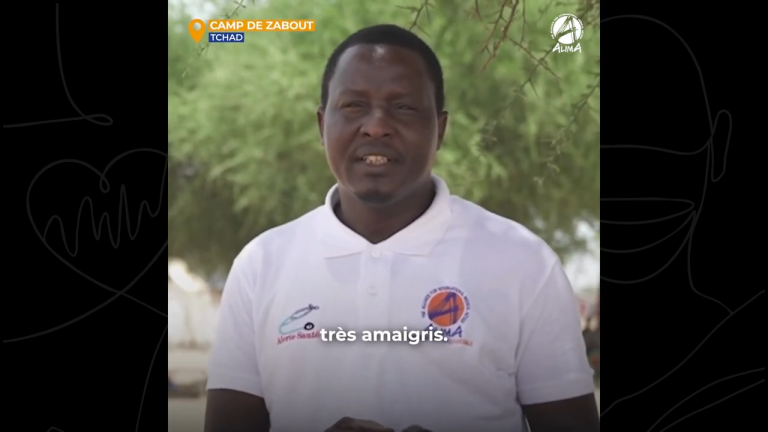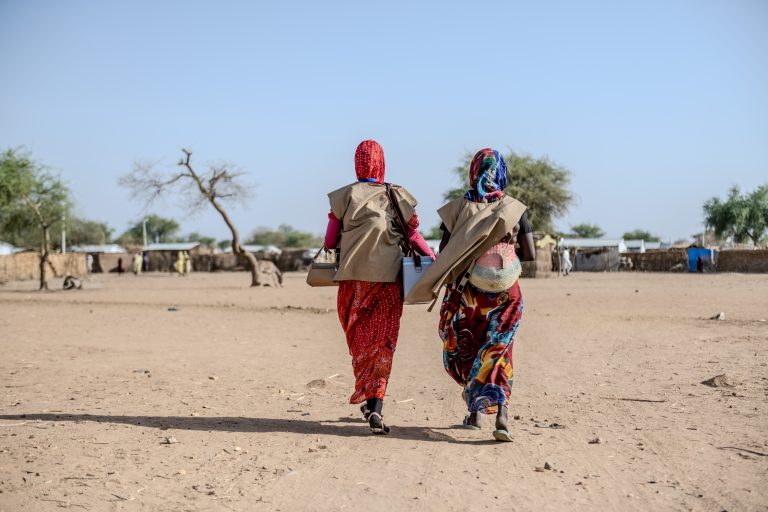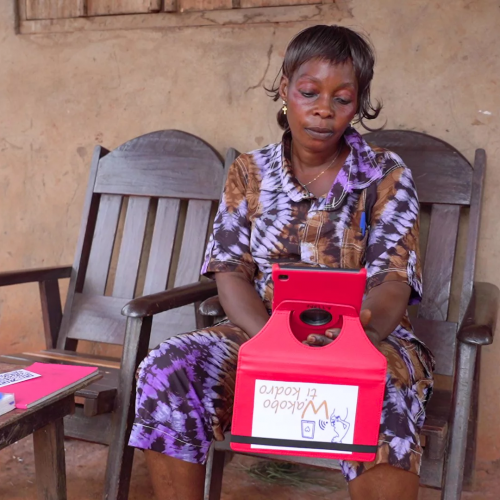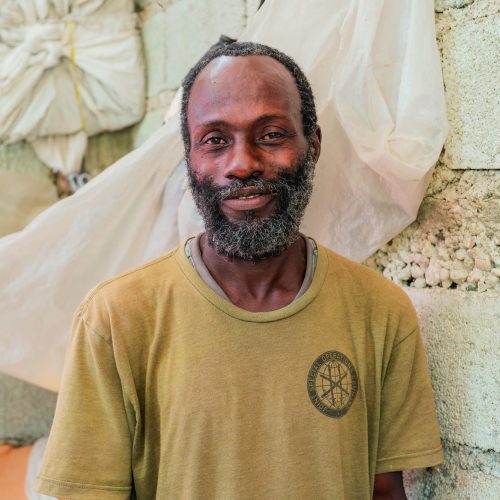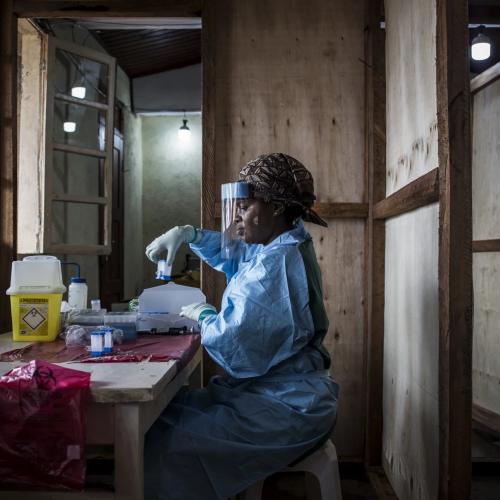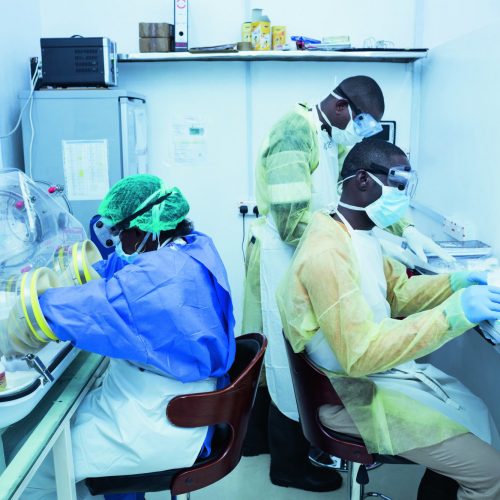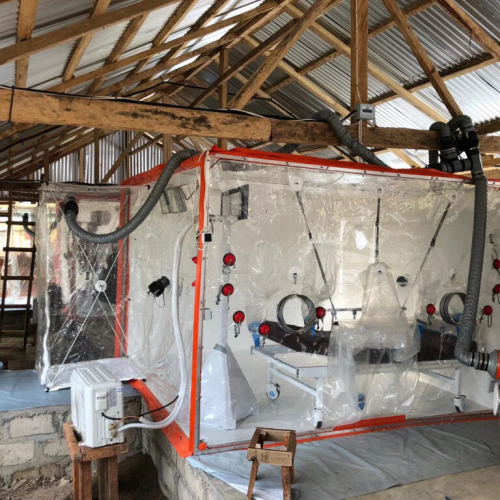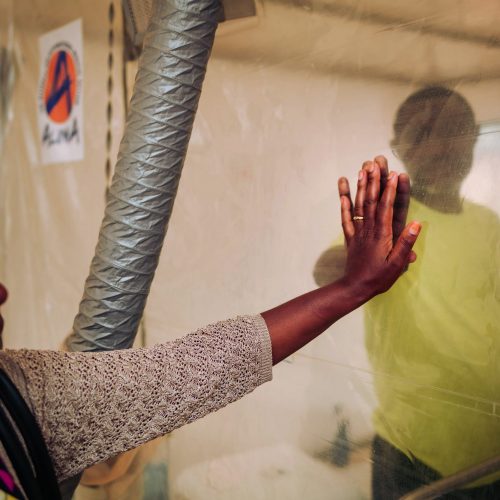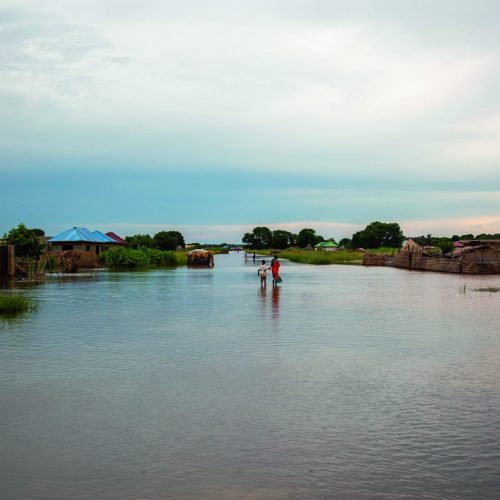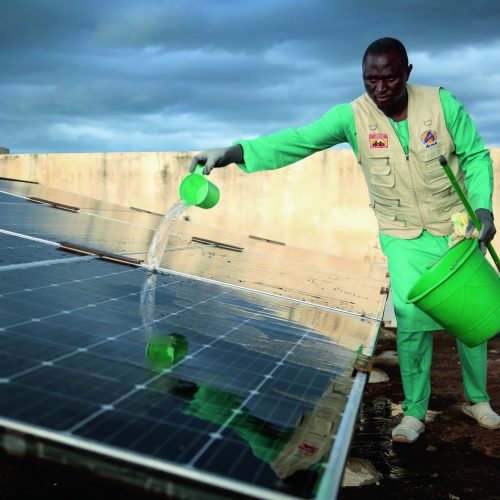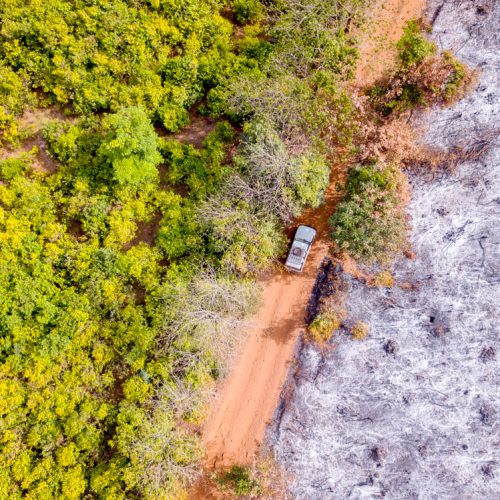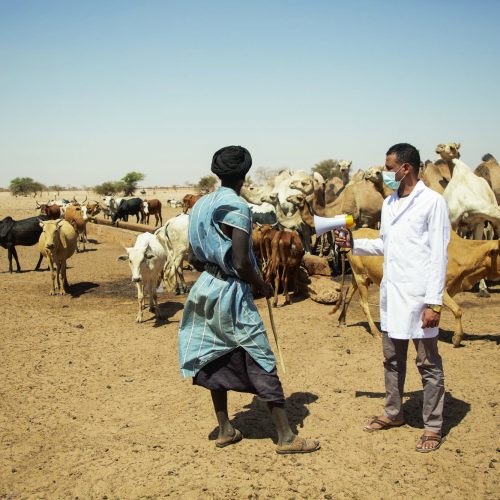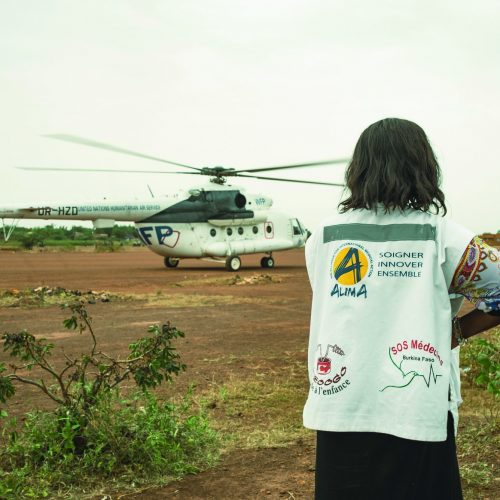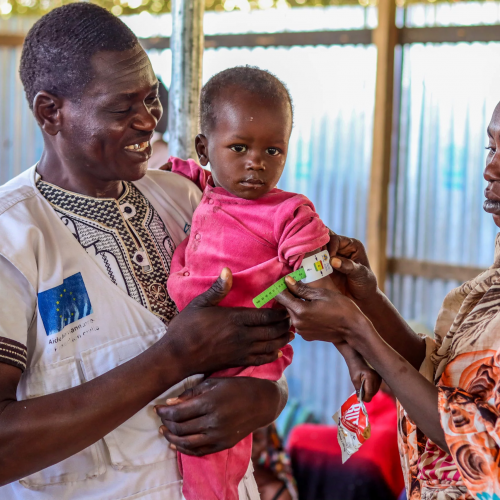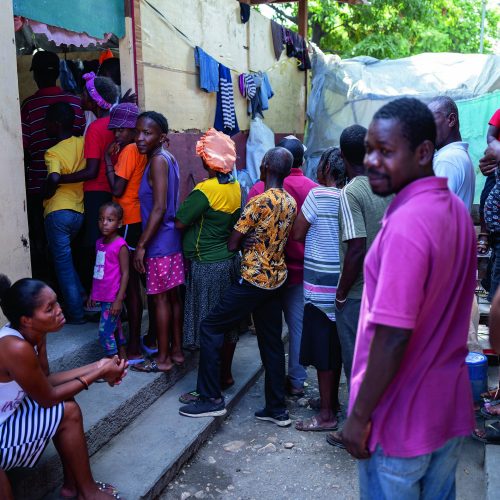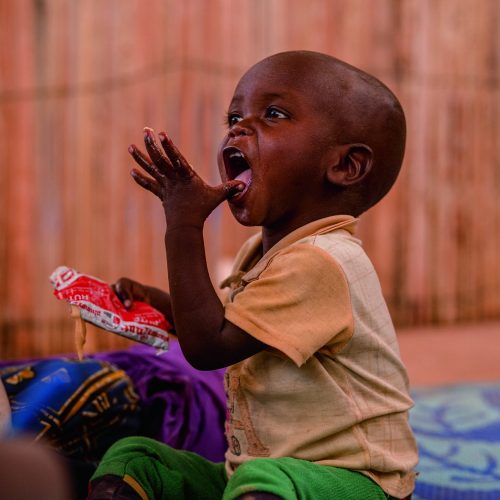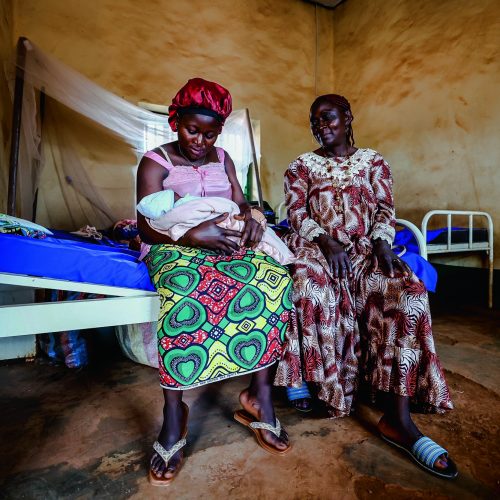Paris/Dakar/Abuja, March 15, 2022-Nigerian hospitals are dealing this year with rising cases of Lassa fever, an acute viral hemorrhagic fever that is endemic to the country. Over 540 cases of Lassa fever have been confirmed throughout the country since the beginning of 2022, leading to 98 deaths, according to the Nigeria Centre for Disease Control. Nigeria has experienced a dangerously high number of Lassa fever cases over the past four years.
Lassa fever affects all sections of the population – young and old alike. It is transferred to humans via the Mastomys rat, with person-to-person transmission through bodily fluid contact. Symptoms include fever, diarrhea, and hemorrhaging and it is particularly dangerous for expectant mothers.
ALIMA, in collaboration with the Nigeria Centre for Disease Control, has been treating Lassa fever patients in the Owo Federal Medical Centre in a 35-bed facility that it helped rehabilitate in 2018. Owo – located in the south-western state of Ondo – remains the epicenter of the outbreak.
“We have provided medical care to 141 patients admitted with Lassa fever since the beginning of the outbreak in December 2021. But this is potentially only the tip of the iceberg. Lassa fever is highly stigmatized in the local community, so a majority of cases likely remain undetected. Only patients in severe stages of the disease come to the hospital,” says O. Zakary Rhissa, Head of Mission, ALIMA Nigeria.
The mortality rate of Lassa fever ranges between 15 to 30% during outbreaks, depending on the medical care provided to the patient. This mortality rate makes Lassa fever one of the deadliest acute viral diseases and one of the most dangerous threats to public health, given its epidemic potential. It also acts with devastating speed, killing people within 14 days of their first symptoms. The World Health Organization has listed it as a priority disease for urgent research and development.
Medical research vital to prevent more deaths in coming years
Efforts in the Owo Federal Medical Centre and across the country are severely limited by a lack of efficient treatment against Lassa fever. The current recommended treatment, intravenous use of the anti-viral medication ribavirin, has several side effects and lacks evidence proving its efficacy. “While we now know much more about the disease than before thanks to the LASCOPE study, the challenge to developing more effective treatments for Lassa fever is that we don’t have the means to properly evaluate new medication,” says Dr Marie Jaspard, infectious disease researcher and project coordinator at ALIMA. Dr. Jaspard has been leading LASCOPE – the largest prospective cohort study ever conducted on Lassa fever, which includes almost 900 Lassa-infected patients.
Launched in 2018, with results from the first 510 participants published in the renowned scientific journal The Lancet Global Health in April 2021, the LASCOPE study aims to document the clinical and biological parameters of Lassa fever patients admitted to the Owo Federal Medical Centre. By adopting an approach that integrates research and patient care, the LASCOPE project provides valuable insight into designing future diagnostic tools, vaccines and therapeutic trials. The study, conducted with research partners Inserm (French National Institute of Health and Medical Research) and ANRS | Emerging Infectious Diseases, among others, continues to include more patients.
However, despite generous grants from the Conrad N Hilton Foundation, ANRS | Emerging Infectious Diseases and others, there is currently a large gap in funding, with teams on site struggling to cover operational costs and build research programs. “Our current funding will only cover medical costs for the next 7 months. But it is vital that such projects continue as LASCOPE is the only study of its kind in the world. Its findings and data are essential to develop treatments and conduct future research. Moreover, additional funds are needed to conduct clinical trials to take another big step forward in our fight against Lassa fever, ” says Dr Jaspard.
ALIMA urges the international community to increase funding for research on emerging diseases. Without additional resources, vital research programmes such as LASCOPE will end, and an important opportunity to better treat emerging diseases and prevent future epidemics will be lost.
***
About Lassa fever:
Lassa fever is an acute viral hemorrhagic fever. Symptoms of the virus include fever, diarrhea, vomiting, abdominal pain, sore throat and hemorrhaging. It is usually transmitted to humans from the infected urine or feces of the Mastomys rat, and can be transmitted from person-to-person via contact with the bodily fluids of an infected person. The World Health Organisation (WHO) estimates that 100,000 to 300,000 people are infected each year in West Africa (Ghana, Togo, Benin, Guinea, Mali, Sierra Leone, Liberia and Nigeria). Every year, in Nigeria, the peak of Lassa fever runs from approximately December to April. The country has been affected by Lassa fever for 50 years, but has had an unusually high number of cases since early 2018.
About LASCOPE:
The LASCOPE study is conducted by a research team from ALIMA and its partners in the framework of the CORAL platform (Clinical and Operational Research Alliance), including the French National Institute for Health and Medical Research, Bordeaux unit (INSERM 1219), the PACCI program in Abidjan, and in coordination with the Nigeria Centre for Disease Control (NCDC) and the World Health Organisation (WHO).
About ANRS | Emerging Infectious Diseases:
ANRS | Emerging Infectious Diseases is an autonomous agency of the Inserm (French National Institute of Health and Medical Research). Its missions are to facilitate, evaluate, coordinate, and fund research into HIV/AIDS, viral hepatitis, sexually transmitted infections, tuberculosis, and emerging and re-emerging infectious diseases.
About ALIMA – The Alliance for International Medical Action :
ALIMA (The Alliance for International Medical Action) is a medical humanitarian NGO established in 2009 to provide quality health care to the most vulnerable people in high-mortality areas during emergencies and crises. ALIMA relies on an operational model based on partnerships with national humanitarian actors and local communities, and has established itself as a key player in the medical humanitarian field in Africa. ALIMA’s ambition is to revolutionize emergency medical aid and transform humanitarian medicine, by conducting research and fostering innovation to strengthen the impact of humanitarian actions. In 12 years, ALIMA has treated more than seven million patients in 14 countries, and launched more than 30 research projects, with a focus on malnutrition, malaria, the Ebola Virus Disease, COVID-19 and Lassa fever.
ALIMA media contacts :
Kayla McMenamin: +1 (503) 780-8514; kayla@minervastrategies.com

